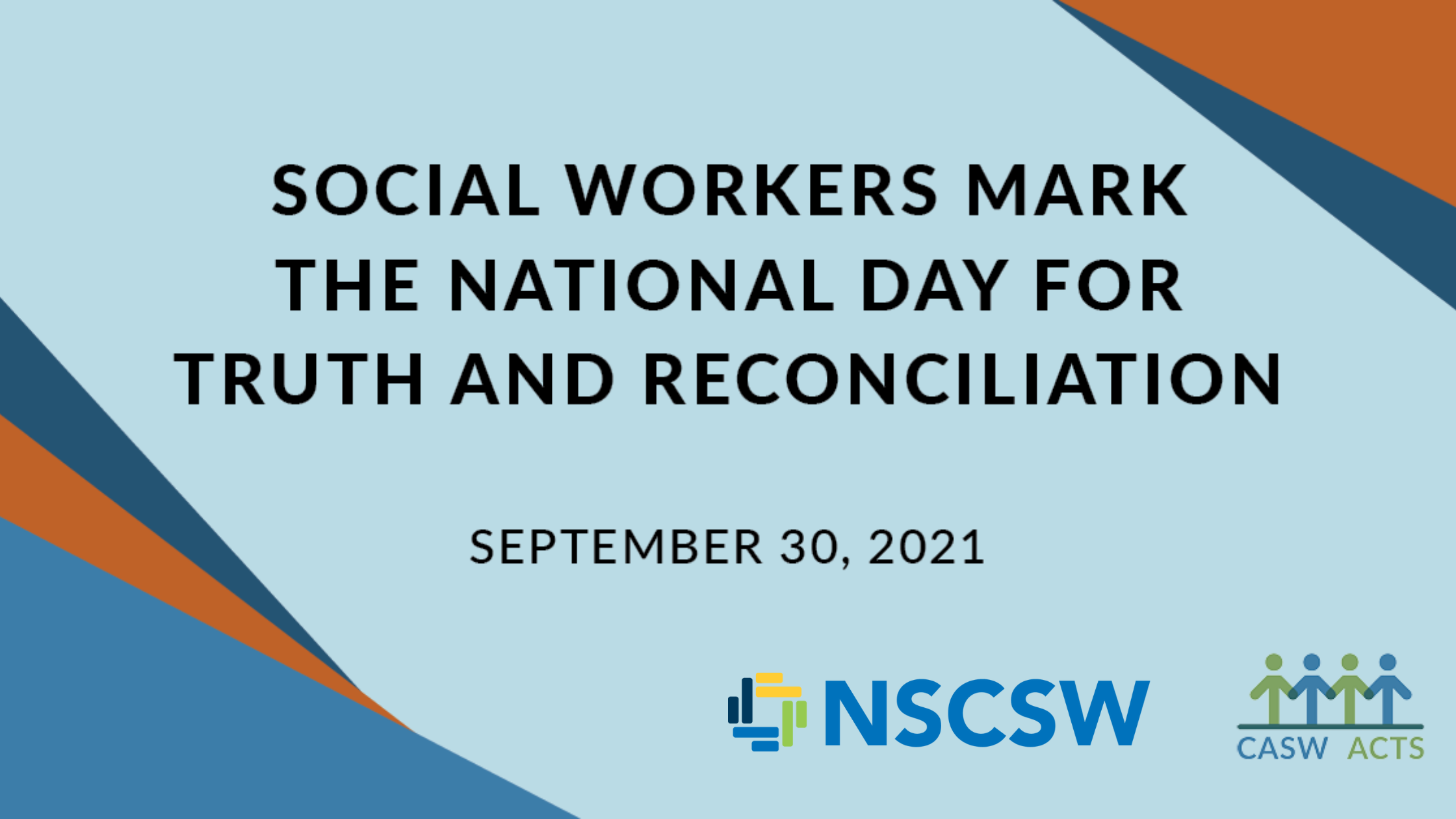
Thursday September 30, 2021, the federal government of Canada observed its first National Day for Truth and Reconciliation, and we are grateful that Nova Scotia is amongst the provinces that has recognized it as well. Nevertheless, we call on its government to utilize this historic opportunity to immediately begin implementing the Commission’s calls to action.
Friday October 1 is Treaty Day, which commemorates the anniversary of our 1752 Treaty of Friendship and Peace. October 1 also marks the beginning of Mi’kmaq History Month in Nova Scotia, which was proclaimed in 1993 by Premier John Savage and Mi’kmaq Grand Chief Ben Sylliboy, and which was instituted to promote public awareness about the Mi’kmaq culture and heritage for all Nova Scotians.
For the Nova Scotia College of Social Workers, this time is an important opportunity to focus on the ways that we will integrate the principles of Truth and Reconciliation, as well as the findings of the National Inquiry into Missing and Murdered Indigenous Girls (MMIWG) into the fabric of our profession. This work is critical, urgent and far too late, yet nevertheless it must be done.
This summer, the College focused effort on ways to revise the professional development standards for Nova Scotian social workers, in order to incorporate some of these necessary calls to action, and integrate some of the current research regarding best practices in professional development.
Steps such as this are just part of the work we must do, to hold our profession and our institutions accountable for the ways in which we, as social workers, have participated and continue to participate in the profound intergenerational trauma that Indigenous communities have experienced and continue to experience. We acknowledge that the apology from the Canadian Association of Social Workers (CASW) is also just step amongst many more that we all must take. For anyone who is interested in serving on a task force related to this topic, please contact [email protected].
CASW President Joan Davis-Whelan recently affirmed that the National Day for Truth and Reconciliation “is an opportunity to not only look back at Canada’s history of genocide and colonialism, and especially with regards to residential schools, but also to reflect on the ways these forces are still at play today – and the critical work of reconciliation that remains to be done.”
We join with them in holding the federal government to account, calling for action on reconciliation following the lead of Indigenous people, communities, and organizations – and for the immediate implementation of the Truth and Reconciliation Commission’s Calls to Action, the National Inquiry into Missing and Murdered Indigenous Women and Girls’ Calls to Justice, and to fully realizing the United Nations Declaration on the Rights of Indigenous Peoples.
We take these days, and indeed this month, to pause in reflection, learning and renewed commitment to the pressing and critical labour of reconciliation that this day seeks to inspire for each of us.





